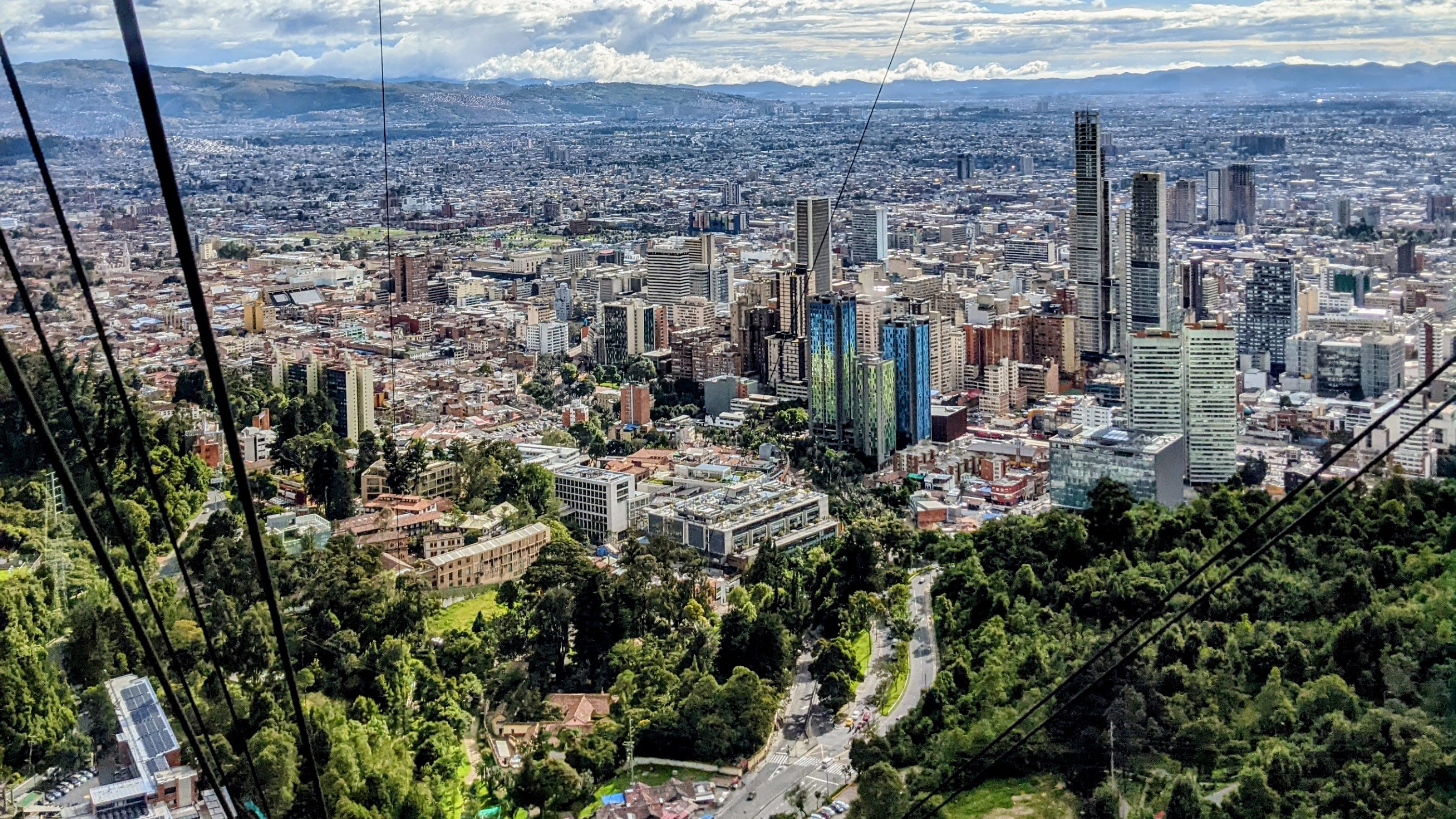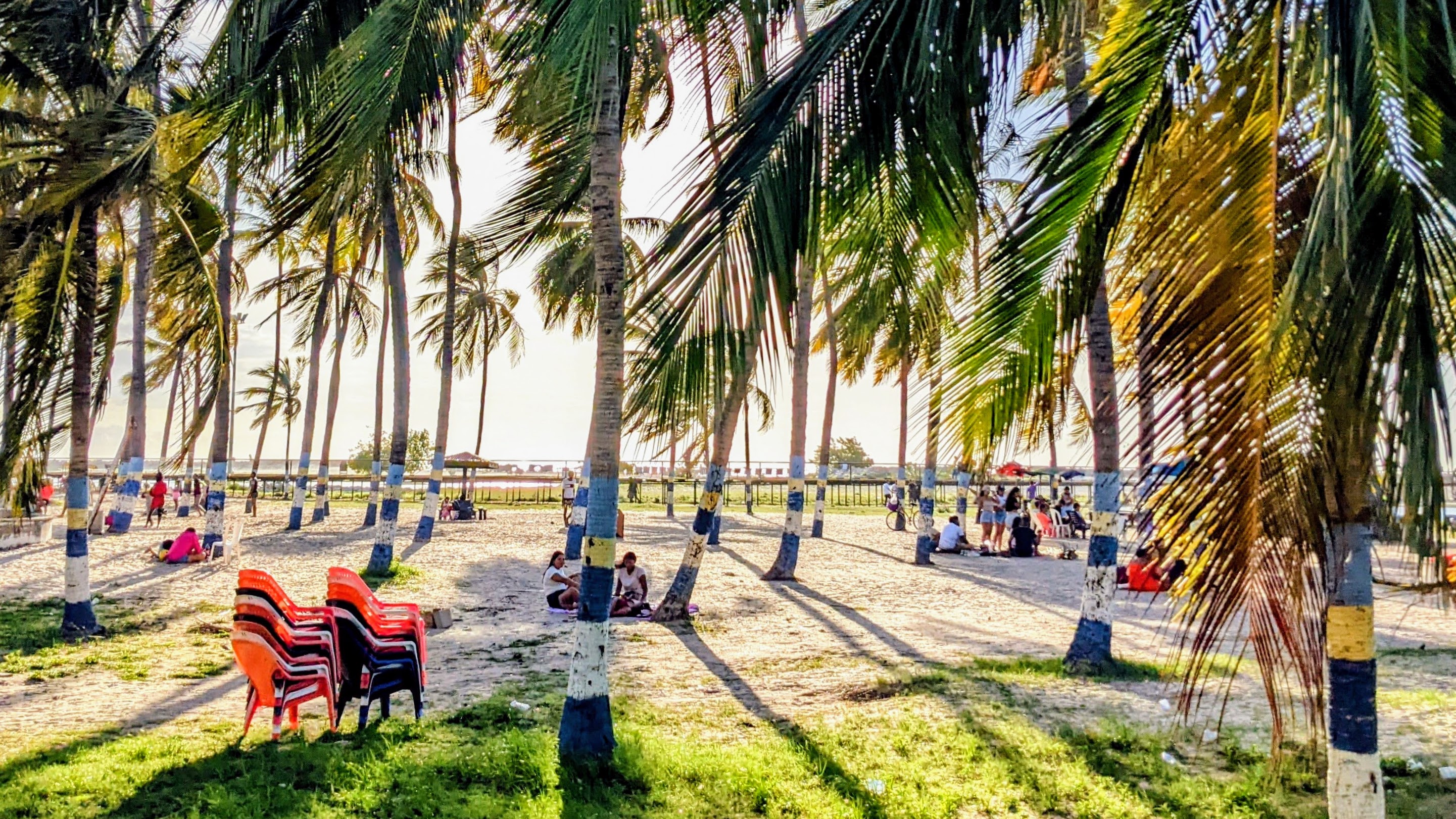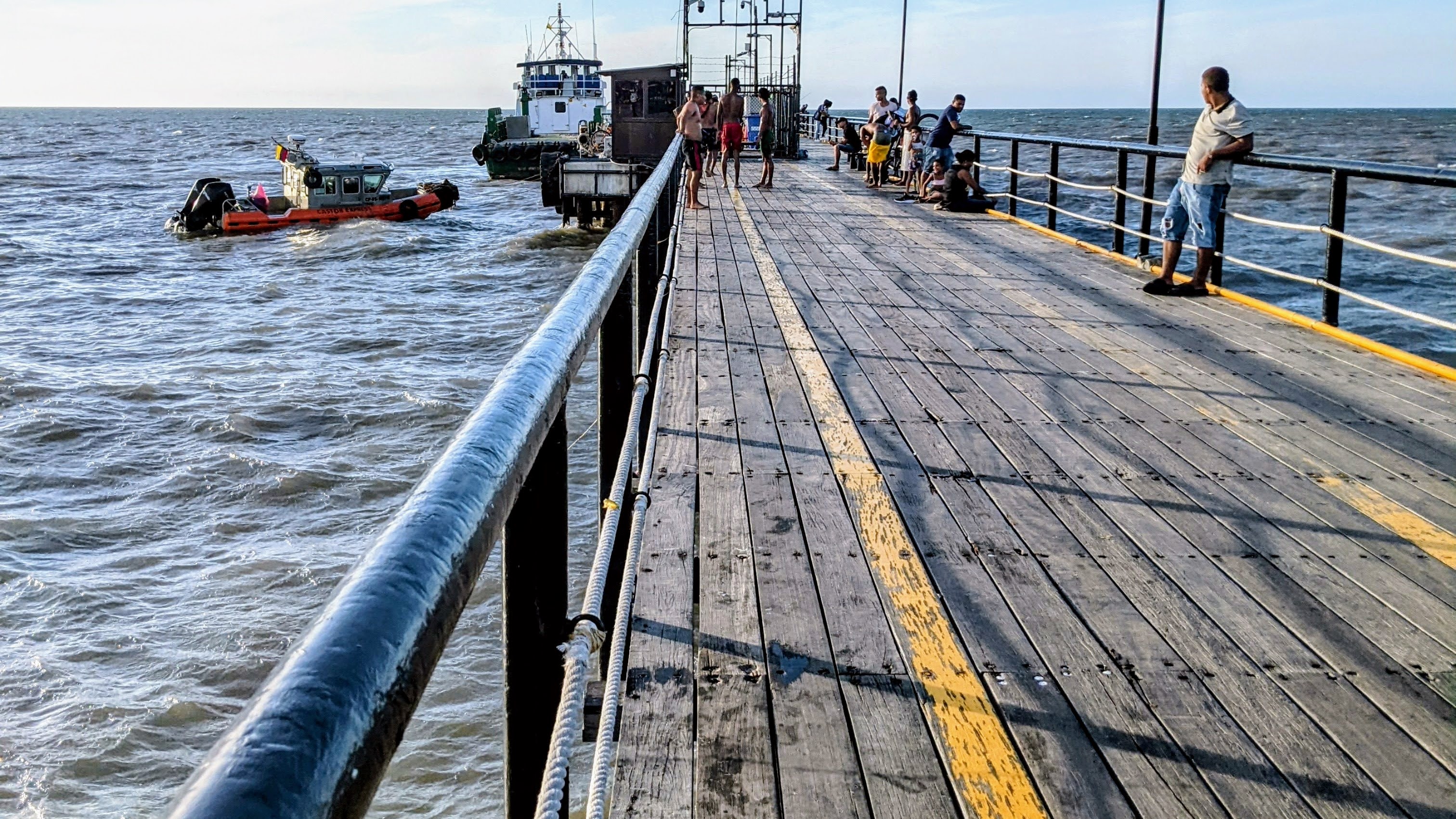The efficacy of a multi-modality approach
A semi-structured thematic analysis of the oral histories I gathered from participants and facilitators connected to Fundación Dunna spotlit some salient ideas and areas of impact.
This article focuses on the efficacy of sharing both restorative and somatic practices to promote resilience and coping among communities affected by trauma.
Fundación Dunna’s work is widespread and spans many different populations and contexts; from ex guerrilla, paramilitary, and military combatant participants of the Colombian government’s social reincorporation programme to young people affected by incarceration and survivors of gender based violence.
More recently though, in response to the social, economic, and political crisis in Venezuela, Dunna has designed thoughtful models of support that meet the unique needs of the families that have been migrating across the border in increasing numbers since 2017. Many of those families have lived experience of destitution, are surviving in unsafe informal settlements and are at high risk of violent crime and poor health, all of which contributes to an intergenerational cycle of distress that impacts every body and the wider population of which they are a part.
UNHCR (United Nations High Commissioner for Refugees), GIFMM (Interagency Group on Mixed Migration Flows) and the IOM (International Organisation for Migration) who have all been working on the front line at the border since 2018, are predominantly resourced to address refugees’ basic rights and survival needs. As such, the church community and spirituality might be the closest thing to emotional support, a network of connection or reparative intervention that is available to these migrants should they have the means, confidence and sense of safety to seek it for themselves.
It is in this context of therapeutic scarcity that Fundación Dunna began connecting with migrant families in cities and remote locations nationwide, not to replicate work that addresses their material circumstances, but to help them build a greater capacity for resilience in order to survive them.

In May 2023 I arrived in Bogotá, and, after acclimatising to the altitude and feeling small at the sight of the mountains surrounding the city, I met Dunna’s founder Maria Adelaida-Lopez and co-founder Natalia Quinones. With generosity and in good faith they introduced me to the facilitators of Dunna’s innovative programming, many of whom shared their insights with me. Their reflections offered me a foundational understanding as to the distinctive barriers and burdens that they witnessed among the participants of the migrant support programme. Domestic violence, social isolation and a lack of cultural continuity and personal agency were prevalent additions to the extreme poverty, food insecurity, housing instability and poor social protection that these families are living with.
Gladly though, the facilitators were also able to articulate the extraordinary arc of change they had seen; mothers and children shifted from presenting as closed and fearful to open and free, both physically and emotionally. They moved away from expressing a sense of helplessness and toward cultivating courage, self-reliance and even ‘a greater capacity to give and receive love’.
“Mindfulness not only makes it possible to survey our internal landscape with compassion and curiosity but can also actively steer us in the right direction for self-care.”
- Bessel van der Kolk, The Body Keeps the Score
Equipped with the perspectives of some of their mind:body and restorative practice facilitators, I travelled to Riohacha, capital of the most northerly Colombian department of La Guajira to hear first hand stories of transformation from those that have participated in the Dunna protocol.
Riohacha is home to a unique landscape of desert and beach rich with indigenous Wayuú custom and craft.
It is host to a wildly diverse population and a fiercely strong sense of identity and cultural protection. It is also the poorest part of the country and it shares a 249 km porous border with Venezuela along which there are 216 unauthorized crossing points or ‘trochas’ at which refugees are at risk of exploitation and attack. Despite sharing many of the needs, scarcities and instabilities with some of the places across the border, Riohacha is one of 3 Colombian municipalities that is host to the greatest number of Venezuelan refugees, many of whom survive in informal settlements in the outskirts of the city.

There is insecurity, xenophobia and multidimensional poverty here but there is resilience, advocacy and allyship too. I met some extraordinary women that embody that resilience and, as leaders of grassroots refugee advocacy projects, practice that allyship every day.
Defenders of migrants’ rights by necessity and community champions by passionate pursuit, finding purpose in their role supporting others has been a means of survival for many of these women. The empathy that drives their work to protect people in the same position that they are or were once in is underpinned by an extraordinary sense of compassion, a quality that was nurtured by the program of self and co-regulation practices shared with them by Dunna.
In reviewing my conversations with these community leaders in Riohacha, I am particularly struck by just how powerful the Dunna protocol's unique use of multiple modalities has been.
Saturdays with Dunna are sacred
Dunna’s programs blend restorative practices like sharing circles and active listening with ‘bottom-up’ mind-body methods like yoga, breath-work, authentic movement and play. Rooted in the traditions of indigenous populations all over the world, knowledge sharing in community has been a powerful tool for collective healing, decision-making, conflict resolution, and cultural preservation for centuries past. Many of the Dunna programme participants I met during my time in Colombia had encountered the profound impact of these powerful restorative, sharing practices, particularly when coupled with somatic methods for regulating the nervous system.
Often, after using breath-work, movement and play to foster a connection with, and to inhabit their own bodies as safe spaces, participants are invited to form a circle, to receive story, engage in active listening and deepen their capacity for sharing in a group context. It seems that it is this combination, this supportive environment of self-regulation and physical safety alongside co-regulation and compassion that has cultivated transformation here. Or, as one of the many former participants I connected with described, the program focuses on both ‘body and soul’, and teaches that “we need to be okay ourselves in order to help others”. In many cases, it was this learning that helped them see how little time they’d had to process or really feel their own difficult experiences - the program gave them back the time that they needed to do just that.
for the first time, she was able to speak without pain and shame
Their Saturdays with Dunna were described as ‘sacred’ by many of the participants that I met with. They recalled spending whole mornings experiencing catharsis in community, crying together in circle, sharing things that they'd never felt safe enough to share before.
In one instance, participants were asked to bring along and present an object that holds deep significance or represents their experience of life—an exercise that sparked open story sharing. One mother brought along the traditionally preserved umbilical cord that she had kept as a lucky charm from the birth of her son, a culturally significant custom for her family. This object represented her fear of losing him and compelled her to share the story of his migration, their separation and the difficulties that she was still working through around her relationship with him. She expressed a sense of liberation in voicing this painful story to the group she had come to trust, and that this was the first time that her experience felt acknowledged outside of a legal or clinical setting. Further still, it marked the first time she felt safe, free from blame or intrusive ‘why?’ questions, and so, it was an opportunity for her to truly begin processing her fear without facing judgement from those around her.

The power of sharing story was further illustrated by another participant who expressed that her journey of healing began at the very moment that she began to speak in the circle. She felt seen, heard, and that she could finally let go of anger. She described never having imagined that she’d allow herself to be emotionally open like this because she was raised to 'stay strong' and ‘never cry’. It was the first time she felt truly listened to, that her experiences were validated and not minimised or questioned by those listening. Another woman shared that, for the first time, she was able to speak about her pivotal traumatic experience without pain and shame, she felt liberated from the hold it had on her, not only in that moment but from that moment forward.
Having heard their stories firsthand, it is clear that the opportunity to feel safe and connected to one’s body and to express oneself without fear of scrutiny or judgement creates a space for catharsis, relief, and a sense of connection that quells the loneliness often associated with holding vivid memories in the body.
“Being able to feel safe with other people is probably the single most important aspect of mental health; safe connections are fundamental to meaningful and satisfying lives.”
- Bessel van der Kolk, The Body Keeps the Score
The increasingly widely accepted notion that the body and mind are intrinsically linked informs our growing understanding that the experience of trauma impacts us both psychologically and somatically. These ideas are underscored by the pioneering work of psychiatrist Dr Bessel van der Kolk; his seminal work ‘The Body Keeps the Score’ catalogues the efficacy of using somatic focused therapeutic intervention, of creating a safe space for self-expression and of social support in addressing trauma recovery.
It is difficult to imagine a more striking demonstration of this than in the stories of transformation I heard in Riohacha - what a joy to witness it.